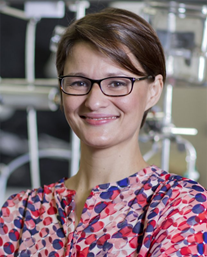Selma Mededovic Thagard, Richard and Helen March Endowed Professor of Chemical and Biomolecular Engineering in the Coulter School of Engineering at Clarkson has been awarded a $422k grant from the National Science Foundation (NSF) for her research project “Plasma-Assisted Dehalogenation of Persistent Halogen-Containing Waste Streams.”

It is estimated that over 50% of all industrial chemicals and polymers, 20% of small molecule drugs and pharmaceutical compounds, and 30% of active compounds in
agrochemistry depend on the chemistry of halogens. Recalcitrance and persistence of organohalogens have resulted in environmental contamination of global proportions; chlorofluorocarbons responsible for ozone depletion, and polyvinylchloride plastics which account for >50% of chlorine in municipal waste are just a few among thousands of chemicals that are pervasive in drinking water and food resources worldwide and as such is harmful to human health and the environment. Dehalogenation of waste streams is at the forefront of the major engineering challenges facing society, as a technology enabling a comprehensive and widely applicable approach to dehalogenation for the 10,000+ organohalogens impacting the environment has yet to be developed.
Mededovic and her team propose plasma-assisted dehalogenation as a disruptive solution to this challenge. The project focuses on probing at a mechanistic level plasma-assisted dehalogenation reaction chemistry and based on these insights develop innovative feedstock-agnostic plasma dehalogenation approaches of which reaction products can be recycled or reused or trace components fully mineralized.
The project runs through 2027.